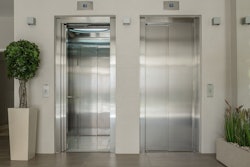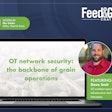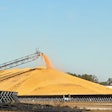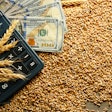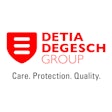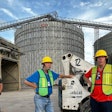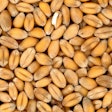Since President Barack Obama has taken office, change has been abundant. Between his proposed healthcare reform, new strategy for the war in the Middle East and his views on funding for higher education, it seems there is little the president wants to remain status quo.
Members of Congress have recently seen two separate pieces of legislation that could profoundly affect the feed and grain industry. One deals with food and feed safety and the other pertains to climate change and cap and trade. Although the implications of each bill are different, their impact could be equally great. The American Feed Industry Association and National Grain and Feed Association weigh in on how these bills could negatively or positively impact feed and grain businesses across America.
Concern over the food and feed safety bill
On July 29 the House of Representatives approved a bill (H.R. 2749) that includes many proposed changes to the nation’s food and feed safety laws. The bill’s intent, in addition to enhancing food safety, is to improve inspections, testing and the traceability of America’s food supply to help isolate the culprit of food illnesses and recalls. H.R. 2749 would mandate broad new authorities and fees for the U.S. Food and Drug Administration.
The Senate’s version of the bill, S. 510, was introduced by author Sen. Richard Durbin (D-IL) in March, and reflects considerable effort on his part to meet the needs of the feed industry. This version of the bill will be voted on later this year or in 2010.
The AFIA worked diligently with members of the House and the Senate, including Rep. Henry Waxman (D-CA), Rep. John Dingell (D-MI) — author of the House bill — and Sen. Durbin, to improve these bills before a final version is signed into law.
Policy Directions’ executive vice president Steve Kopperud, AFIA’s government affairs consultant, explains some of the AFIA’s main concerns, and sheds light on the association’s progress.
“The bill’s underlying legislation, the Federal Food, Drug, and Cosmetic Act, defines food as anything fed to man or animal,” says Kopperud. “AFIA wants to ensure that any new regulations regarding food labeling and allergens, which are legitimate concerns on the human side, aren’t arbitrarily or unnecessarily imposed on the feed and pet food industries."
The feed industry could be inappropriately regulated because both bills are predicated on the creation of risk-based plans for risk management. Both the House and Senate bills, for instance, list examples of what could be incorporated in a facility’s risk-based plan, including the control of allergens, cleanliness of stainless steel surfaces and recommendations on employee hand washing.
“Those types of safeguards are absolutely critical, and make clear sense in a human food-processing plant, but they generally have little application in an animal feed production plant,” says Kopperud. “This becomes our No. 1 concern. We do not believe the feed industry should be regulated unnecessarily under umbrella legislative language not intended to cover the feed industry or unjustifiably includes the feed industry.”
Another concern for AFIA is the notion that the FDA will designate tiers of risk for each production facility; however, it is not yet clear how the tiers will be determined, or what criteria will be used to assess a plant’s risk level.
“The House bill is somewhat problematic for us because it gives the secretary and the commissioner [of the FDA] discretion to set categories of risk, such as high risk, intermediate risk and low risk,” says Kopperud. “It would seem obvious to insiders of the industry that a feed plant, on the scheme of human food safety, would be one of the lowest-risk facilities that you could come across, but the House bill doesn’t make it as obvious as we would like.”
Until the criteria for establishing risk categories are clearly set, and feed plants are given appropriate designation, Kopperud says AFIA will work to ensure that the bill would not require feed facilities to endure additional FDA inspections.
Making headway
Despite the association’s concerns, Kopperud says AFIA has made significant progress toward securing the feed industry’s well-being. Both the Senate and House bills carry firewalls between human food regulation and animal feed/pet food regulations. However, there is always room for improvement.
“Although we’ve made progress, we’d like to toughen up those firewalls as the Senate moves forward with their bill,” says Kopperud. “We’d like there to be a mandate on the FDA commissioner and the secretary of Health and Human Services that when considering any regulation of human food, they must take into account whether or not it would be logical or reasonable to impose the same regulation on the feed industry.”
The threat of additional FDA inspections is another concern Kopperud is confident will be solved.
“The feed industry will likely not be subject to further FDA inspections,” says Kopperud. “There is language written in both the Senate and House bills that recognizes current feed industry good manufacturing practices (cGMPs) as risk-based, so there would be no reason for the FDA to increase registered feed mill inspections.”
Kopperud says a majority of the feed industry’s progress is thanks to Sen. Durbin and his staff, as well as Rep. Waxman and Rep. Joe Barton (R-TX), who along with their staffs took measures to reach out to several industry and consumer groups with stakes and concerns over the legislation.
“The Durbin bill is a truly bipartisan bill and right now is as close to a consensus document as you can get between industry, consumer groups and others,” says Kopperud. “The Dingell bill in the House is now much better than originally drafted because both sides of the aisle cooperated on ensuring the bill improves food safety, but in a way the agency and the industry can handle. When S. 510 was introduced, AFIA endorsed it because Durbin took a good even-handed approach. Our communication will continue, but we endorse the direction it is heading.”
Although H.R. 2749 has been approved, S. 510 has yet to be voted on in the Senate. When the bill will be voted on is dependent upon how quickly other pieces of legislation are resolved.
Other high-profile pieces of legislation, mainly healthcare reform, are taking precedence over the bill, possibly pushing its approval to 2010.
“In the absence of a major recall that would bring food safety to the forefront, there is a 50/50 chance that it would go through this year,” says Kopperud. “There is a good chance that healthcare reform and climate change/cap and trade issues will take priority.”
Climate change/cap and trade concerns
Another hot button issue for the feed industry is climate change and cap and trade legislation. On June 26 the House approved H.R. 2454, the American Clean Energy and Security Act of 2009, which was designed to create clean energy jobs, achieve energy independence, reduce pollution and transition to a clean energy economy. While those initiatives sound noble, the bill proposes using land idling and a cap and trade policy to reach its goals, which could impact the cost of food and feed, while putting the United States at a competitive disadvantage among the world’s leading crop producers.
Several associations across the feed and grain industry, including the NGFA, currently oppose H.R. 2454. A main component of the bill includes an incentive to convert crop land to forest or grassland in exchange for tradable carbon credits.
Idling land puts U.S. crop producers at a competitive disadvantage. According to the NGFA, land in major U.S. crops has steadily declined since 2000, while world land planted has increased by 153 million acres. The land taken out of production in the United States would inevitably be made up for by other crop producing nations who do not employ similar conservation efforts.
Another concern for the feed industry is the cap and trade component. The program is designed to reduce green- house gas emissions by putting a ceiling on the amount of emissions that the United States is allowed to emit from its industries, building and transportation sectors.
Companies that are able to operate below their emissions cap will be able to obtain and trade credits to companies that cannot reduce their emissions below their cap. In theory, the cap and trade program is an incentive for companies to invest in energy-efficient systems so they will not have to purchase carbon credits from other companies.
For the feed industry, however, implementing a cap and trade policy could have unintended consequences. One of paramount concern to the NGFA is an increase in the cost of handling, processing and exporting grain and oilseeds.
Because the commodities the grain industry produces are generally consumed a great distance away from where they originated, the industry ships major quantities by truck, barge, ocean vessel and rail. Major cost increases in transportation would make quite an impact in grains and oilseeds shippers’ bottom lines, inevitably forcing them to pass along the costs.
Since this bill has already been passed in the House, it now must be voted on in the Senate before signed into law. The NGFA, along with several other feed industry associations, is working to ensure the well-being of the industry. This piece of legislation is expected to be voted on at the end of 2009 or in 2010.


